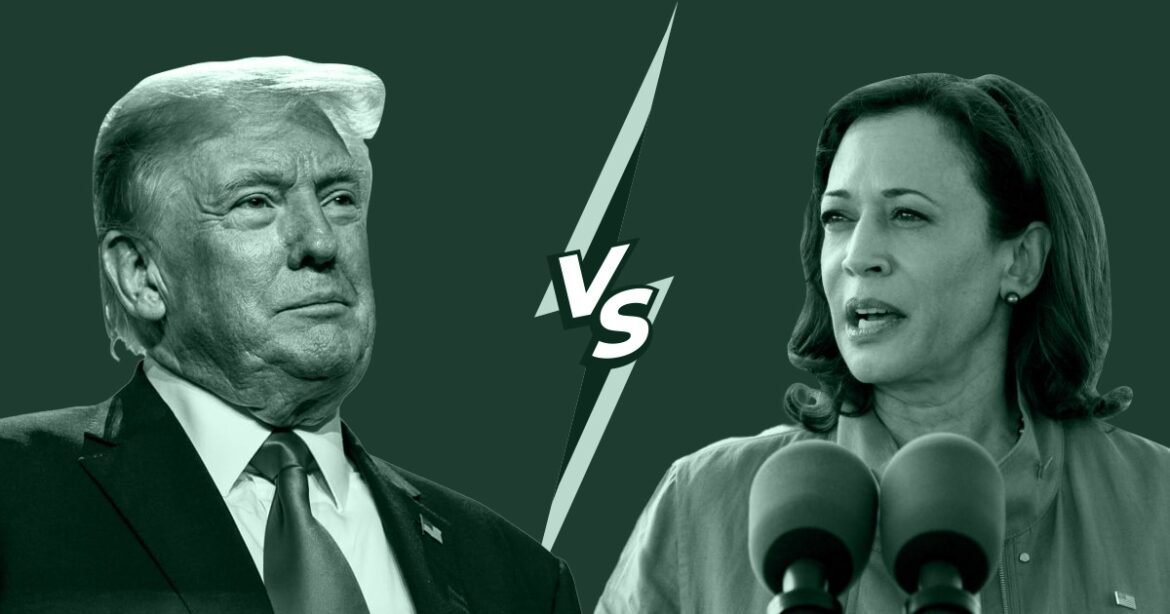US Presidential Debate: Do It Really Sway Voters?
Key Highlights:
- Vice President Kamala Harris and former President Donald Trump will face off in their first presidential debate
- Studies from 2000-2012 found that 86.3% of respondents did not change their candidate preference after debates
- Despite Hillary Clinton’s strong debate performances in 2016, polling shifts were minimal
- While debates are unlikely to drastically alter the race, they can still shape public perceptions
As the 2024 US presidential race intensifies, Vice President Kamala Harris, the Democratic nominee, will face off against former President Donald Trump, the Republican nominee, in their first and possibly only debate. Set to take place at the National Constitution Center in Philadelphia and broadcast by ABC News, this debate is seen as a crucial moment in the election campaign, with polling showing the two candidates in a near dead heat nationally and in key swing states.
Trump and Harris will meet on the debate stage for the first time, marking a pivotal moment in a race that has already seen major shifts. Trump previously debated President Joe Biden on June 27, but after a poorly received performance, Biden dropped out, and Harris took over the Democratic nomination. With less than two months until Election Day, many are wondering if the debate will have any significant impact on the election’s outcome.
Do Presidential Debates Influence Election Results?
Historically, research suggests that debates rarely change the course of elections, Al Jazeera reports. A study by Harvard Business School’s Vincent Pons and University of California, Berkeley’s Caroline Le Penec-Caldichouri, which analyzed data from multiple countries including the US, found that televised debates seldom swayed voter preferences. Their research showed that debates did little to shift the views of voters who had already made up their minds.
Another study by University of Missouri professors Mitchell McKinney and Benjamin Werner, which surveyed US university students, reinforced this idea. According to their findings, 86.3% of respondents did not change their candidate preference after watching debates between 2000 and 2012. Only a small percentage of undecided voters made up their minds based on the debates.
2020 Presidential Debates: Minimal Impact

In the 2020 election cycle, Trump and Biden participated in two debates. A Monmouth University poll conducted before the first debate found that 87% of voters believed the debates would not influence their decision. This proved to be true, as post-debate polling averages showed little to no change. Biden’s slight lead before the debates remained consistent throughout the election period.
Lessons from the 2016 Presidential Debates
Looking back at the 2016 election, the debates between Trump and Hillary Clinton also had limited impact on voter preferences. Despite Clinton being widely regarded as the winner of the debates, polling averages showed only minor shifts, with Clinton’s numbers barely moving after each debate. Ultimately, Clinton won the popular vote but lost the Electoral College to Trump.
Lessons from the 2016 Presidential Debates
Looking back at the 2016 election, the debates between Trump and Hillary Clinton also had limited impact on voter preferences. Despite Clinton being widely regarded as the winner of the debates, polling averages showed only minor shifts, with Clinton’s numbers barely moving after each debate. Ultimately, Clinton won the popular vote but lost the Electoral College to Trump.
What to Expect from the 2024 Debate
As the 2024 race moves toward November, Harris and Trump are in a tightly contested battle. While polling suggests Harris holds a narrow lead, especially after Biden’s exit, the debate could still serve as a defining moment for undecided voters. However, as history shows, debates alone are unlikely to cause major shifts in voter sentiment. Instead, these events may shape public perception of the candidates without drastically altering the final outcome.
In summary, while debates capture national attention and can create memorable moments, they rarely change the minds of a large portion of the electorate. For most voters, their decisions are influenced by broader political trends and the overall campaign narrative rather than debate performances. Nonetheless, for a select group of undecided or swing voters, the debate could be pivotal.


